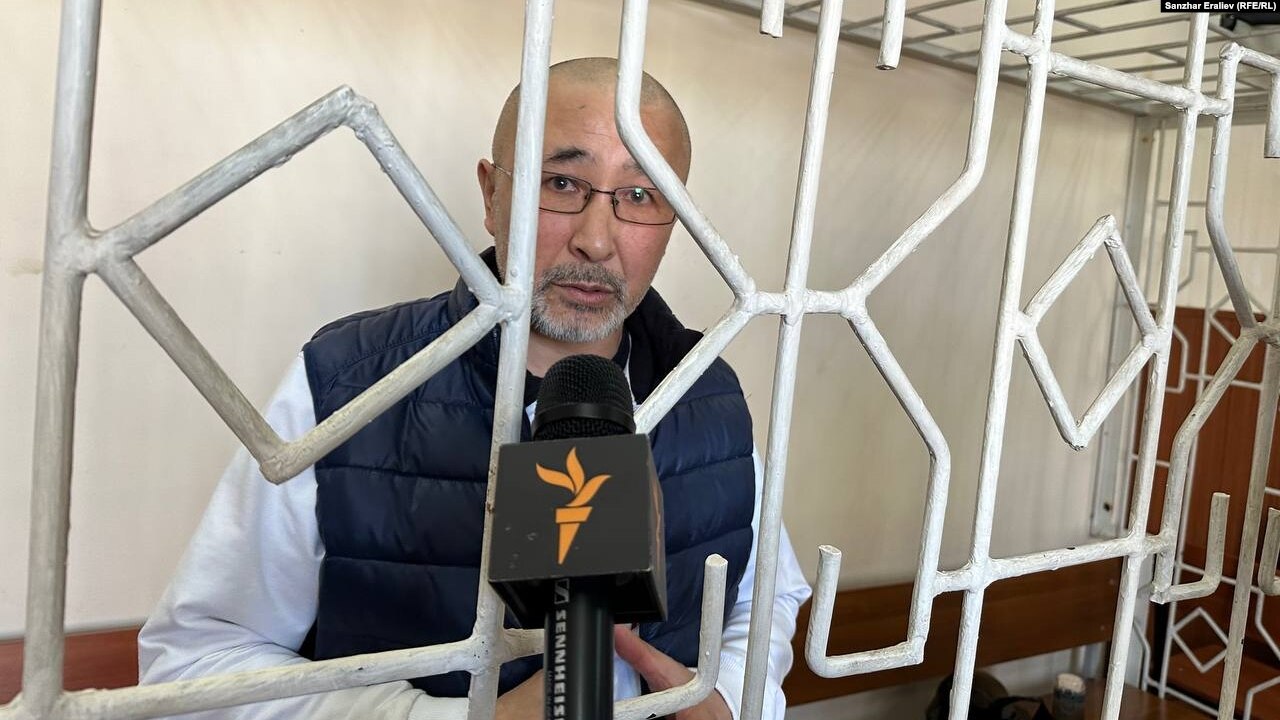The Clooney Foundation for Justice’s TrialWatch initiative today called on Kyrgyzstan to reverse the convictions of journalist Olzhobai Shakir and activist Zarina Torokulova in a petition to the United Nations Working Group on Arbitrary Detention. Shakir and Torokulova were arbitrarily arrested and detained in 2023 for the legitimate exercise of their freedoms of expression and peaceful assembly.
Filed jointly with Debevoise & Plimpton LLP, the petition highlights Kyrgyzstan’s increasing misuse of Article 278 of its Criminal Code to target protected expression, including government criticism. TrialWatch has also previously challenged this practice in relation to the trial of journalists affiliated with Temirov Live. In the petition, TrialWatch and Debevoise call on the UN Working Group to classify the Shakir and Torokulova detentions as arbitrary and to declare Kyrgyzstan’s incitement law inconsistent with international standards.
“Kyrgyzstan’s incitement law is vague and overbroad, and is being misused as a vehicle to quash activism; criticism is not incitement,” said Stephen Townley, Legal Director of TrialWatch.
Both Shakir and Torokulova were convicted under Article 278, which prohibits “calls for disobedience against authorities and riots.” Shakir, a prominent journalist, writer, blogger, and activist, was arrested after posting a video critical of Kyrgyz authorities; Torokulova, an economist and activist, was arrested after urging a social media user to share two videos, including Shakir’s.
TrialWatch monitored Shakir’s trial and reviewed documents from Torokulova’s trial, finding numerous violations of international rights and standards, including excessive reliance on flawed expert reports in violation of the right to a fair trial—a trend TrialWatch has previously documented in the region.
Once regarded as a model of democracy in Central Asia, Kyrgyzstan’s human rights record has deteriorated under President Japarov, whose adminstration has weaponized courts against journalists and critics.
In Shakir’s video, posted in August 2023, Shakir criticized Kyrgyzstan’s decision to cede the border-straddling Kempir-Abad reservoir to Uzbekistan, calling for a “peace rally” in protest. Days later, Shakir was accused of inciting active disobedience, mass riots, violence against citizens, and the “violent” seizure of power. He was arrested and kept in pre-trial detention for several months before he was convicted and sentenced to five years’ imprisonment. He remained imprisoned several more months until the Supreme Court suspended his sentence this October, placing him under three years’ probation.
Torokulova was convicted under Articles 278 and 41, which, together, criminalize persuading “another accomplice to commit” an Article 278 crime, receiving three-years’ probation. The prosecution later appealed, arguing that the verdict had been “excessively lenient.” The court of appeals annulled the more lenient sentence, imposing five years’ imprisonment, and her Supreme Court appeal was denied.
In both cases, the prosecution relied on questionable state-appointed expert reports, in violation of the defendants’ right to a fair trial. In Shakir’s trial, for instance, one expert report was produced in less than a day; the other did not specify the alleged ‘calls to violence’; and a whistleblower and former government expert testified to the way the authorities interfere in the drafting of such reports.
“These detentions reflect a continued and worrying trend of Kyrgyz authorities utilizing Article 278 to suppress dissent and restrict freedom of expression in Kyrgystan—a trend that three UN Special Rapporteurs have already warned is likely to result in a chilling effect on protected speech throughout the country,” said Julianne Marley, an associate at Debevoise & Plimpton LLP.
TrialWatch and Debevoise call on the UN Working Group to find that Torokulova is being arbitrarily detained, and that Shakir’s detention was likewise arbitrary, and to conclude that Kyrgyzstan’s incitement law is inconsistent with international standards.
About the Clooney Foundation for Justice’s TrialWatch Initiative
TrialWatch monitors criminal trials globally against those who are most vulnerable—particularly journalists, democracy defenders, women and girls, LGBTQ+ persons, and minorities. TrialWatch’s work covers more than 40 countries and has led to persecuted individuals being freed or acquitted, and unfair laws reformed, in dozens of cases. TrialWatch is now building a Global Justice Index that will be the first to rank countries on their justice systems through real-world data.
About The Clooney Foundation for Justice
CFJ’s mission is waging justice to create a world where human rights are protected and no one is above the law. We operate in over 40 countries, providing free legal support to victims of human rights abuses. Our aim is to protect those who are being persecuted and ensure that perpetrators are brought to justice, with a focus on protecting women, journalists, defenders of democracy and minorities.
